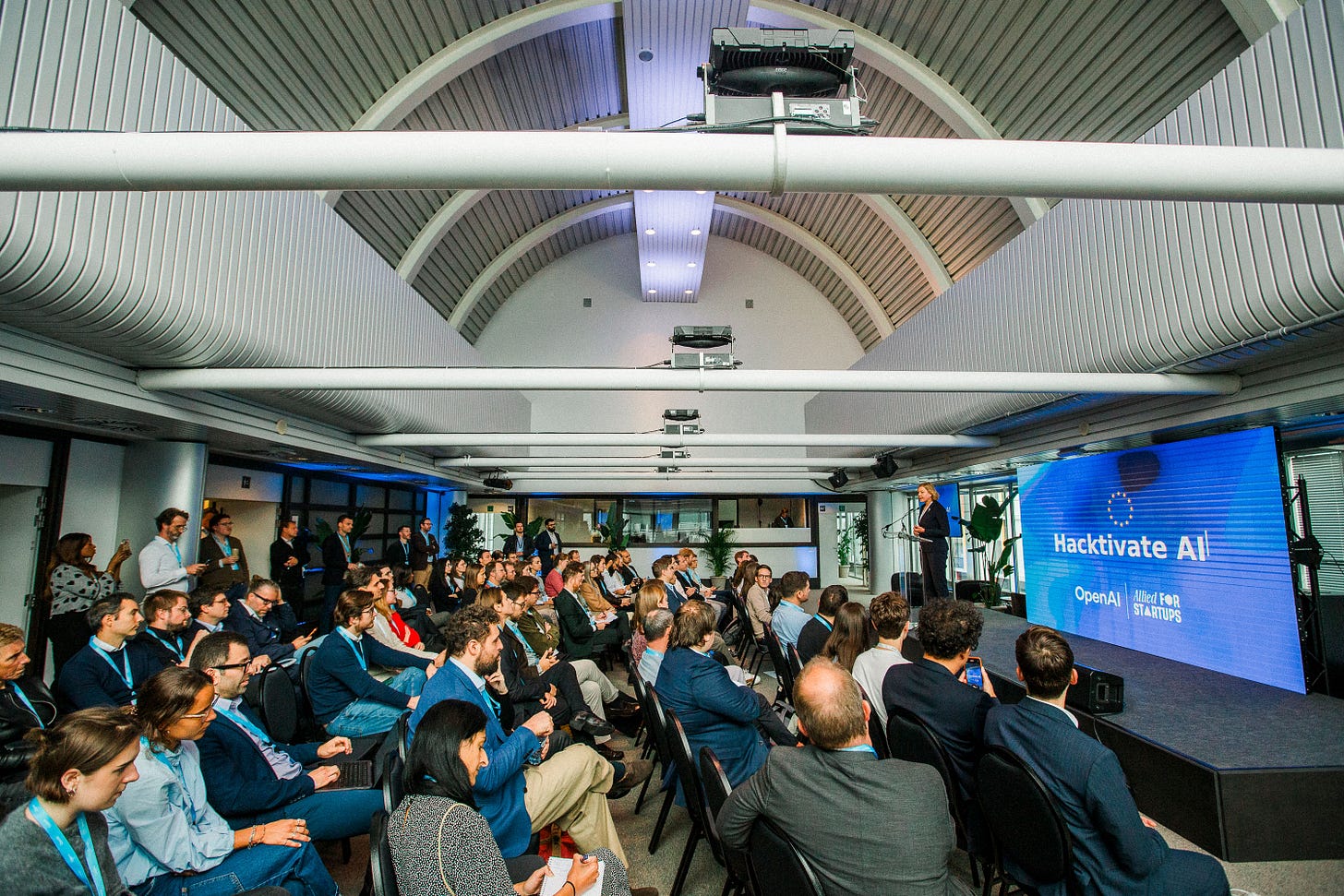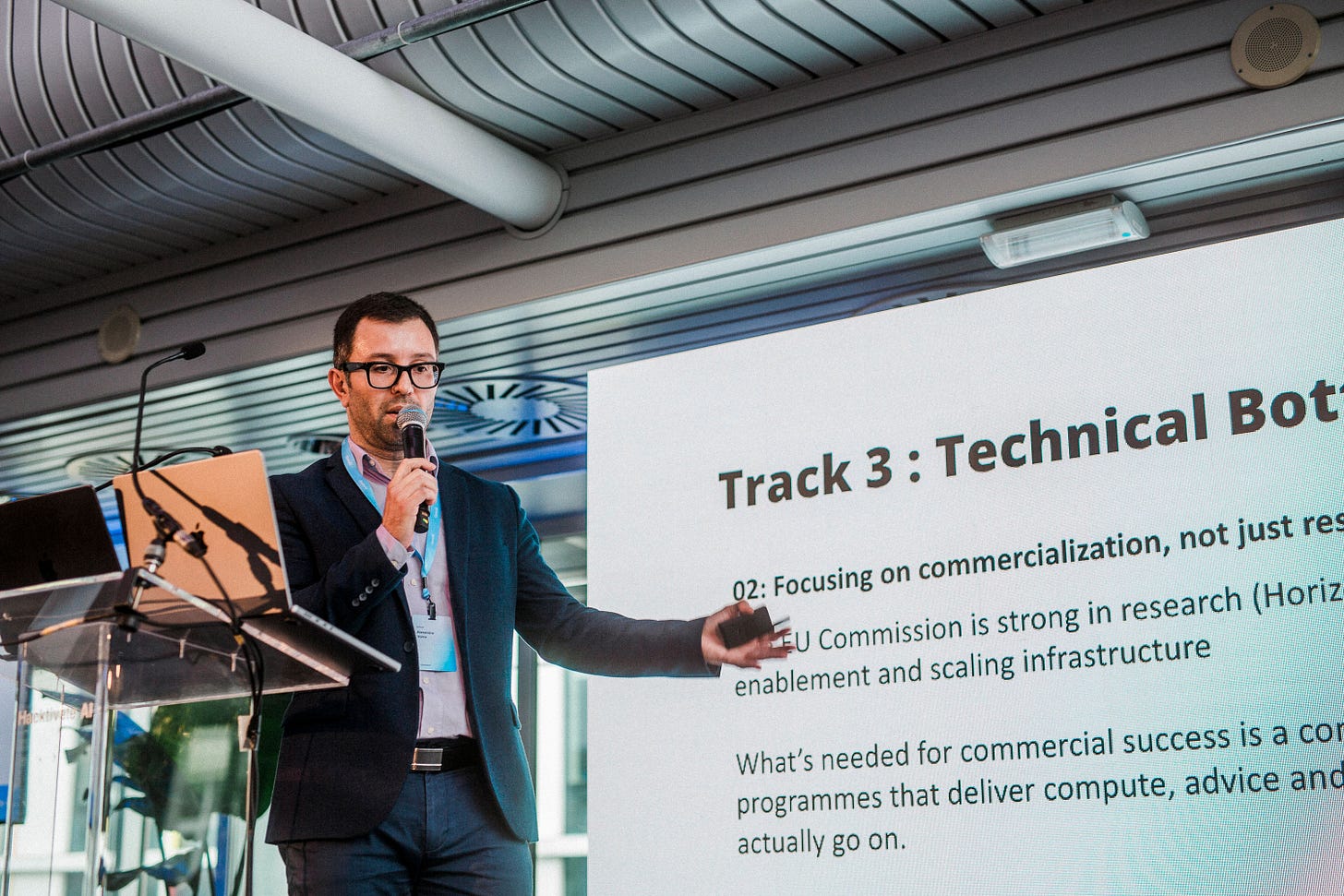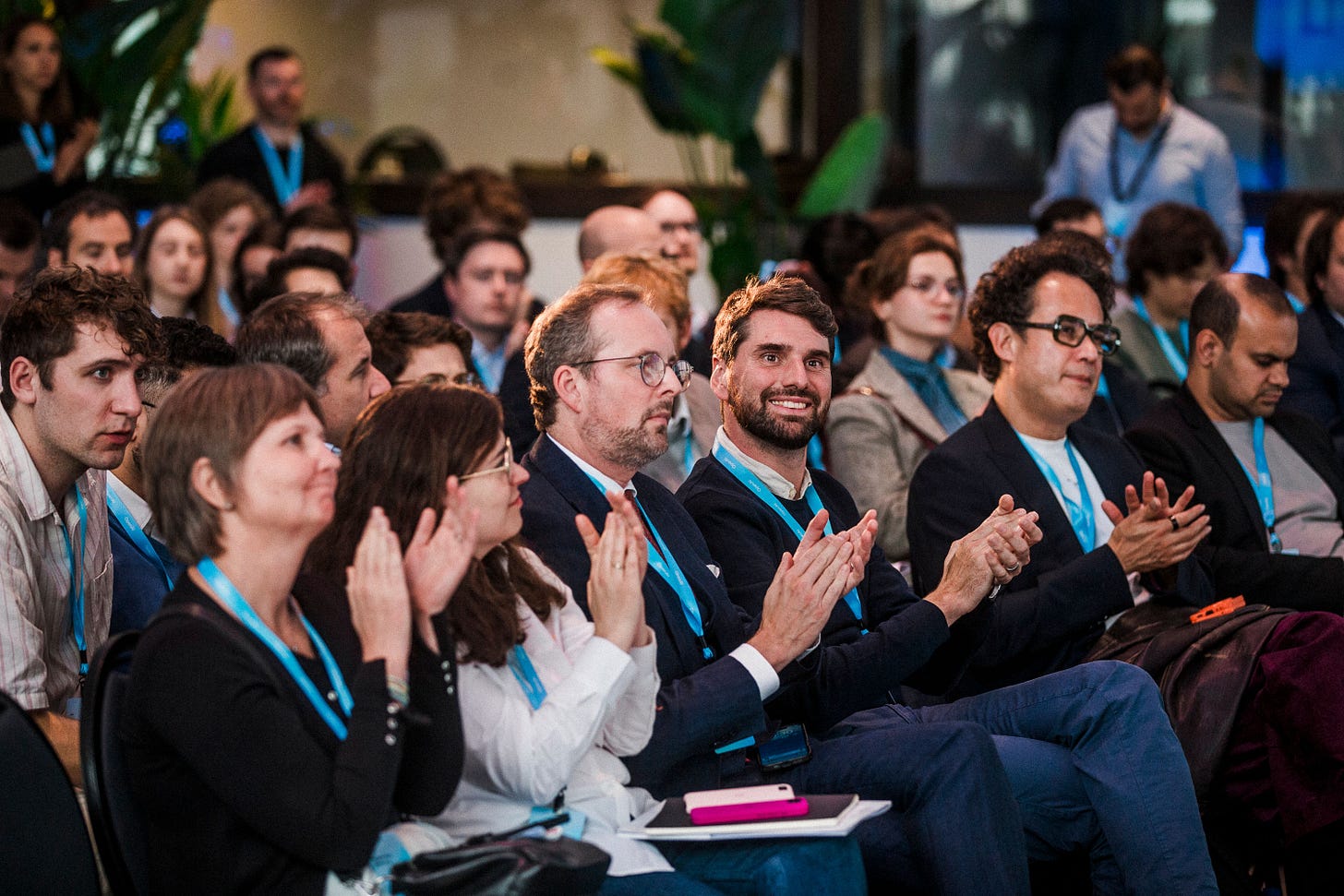Removing technical bottlenecks for AI adoption in Europe; machine translations are causing havoc on Wikipedia; AI "workslop" is destroying productivity; YouTube thinks AI is its future
Anthropic and OpenAI are developing co-workers; DeepSeek publishes new paper on distillation in Nature; Nvidia bets big on gigantic AI factories around the world
This week I decided to opt for self-inflicted pain and took the first train from London to Bruxelles to speak at two events: AI Governance: Between Innovation and Competition, organized by the George Washington University’s Competition & Innovation Lab; and Hacktivate AI, a policy-focused hackathon held by Allied for Startups and OpenAI to spark ideas and solutions that accelerate AI adoption in Europe.

If I were to summarize my remarks in one sentence, it would be: Europe’s AI bottlenecks are boring, but we should fix them anyway. For those interested in the longer version, watch the video below (featuring my spanking new Express-2 avatar courtesy of Synthesia) and read on for some additional thoughts.
If the EU wants AI that scales, it doesn’t need another moonshot strategy or piece of regulation; it needs plumbing. The technical bottlenecks throttling European startups aren’t mysteries. In fact, they were there before generative AI and they’ll continue to exist long after, if left unaddressed. They are predictable byproducts of fragmented infrastructure, slow money, and standards that live in PDFs instead of procurement.
Hacktivate AI was particularly interesting because it brought together industry and academia to brainstorm some real solutions. My working group was made up of the Startup Coalition, Hugging Face, AI Lithuania, Volkswagen, Nvidia, the French Ministry for Finance and the Economy, appliedAI, Sanofi, SAPIE and Synthesia and we presented four policy moves that would actually move the needle on AI adoption.
Build a “mutual-aid” market for compute and data
Right now under the EuroHPC rules for accessing European AI supercomputers, early-stage teams are asked to predict their compute needs before they even have product–market fit.
This is red tape dressed as capacity planning.
Instead, we should create a structured, EU-backed exchange where startups can trade harmonized open datasets, labeling/clean-up work, and contribution credits for time on these public AI factories.
Think of it as a “take-a-euro, leave-a-euro” jar, except the euros are clean data and compute credits, with Commission-provided templates to keep the inputs interoperable and trustworthy .
The payoff: less gatekeeping upfront, better utilization of expensive clusters, and a continent-wide incentives loop to produce high-quality domain data (climate, health, social science) that startups can actually use today, not after a year of negotiations.
Replace the grant maze with a layered scale-up pipeline
Europe excels at funding research; it struggles to turn papers into products. The EU can map the jumble of programs (advice, grants, compute, capital) to the real startup journey: simple compliance guides and no-code tooling at the start; pooled compute and EIB-backed growth capital when traction appears; and “right-sized” interventions at every intermediate step. In other words, a conveyor belt—not a scavenger hunt .
This is less about new money than choreography: route founders through a single intake and progressive tiers of support that expand as technical and commercial readiness does.
If the EU wants globally competitive AI firms, it needs to stop tinkering at the edges with vanity projects like the EuroStack and institutionalize the handoffs that Silicon Valley leaves to chance.
Make funding agile: short apps, fast clocks, delegated decisions
AI moves too quickly for 50-page applications and nine-month verdicts. Stand up an Innovation Fast Track that uses: (a) 10-page concept notes for MVP pilots; (b) proportional due diligence so oversight scales with grant size; (c) trusted intermediaries (accredited accelerators, venture funds, and innovation hubs) to re-grant with clear audit trails; (d) expert “rapid review” panels by sector; and (e) always-open calls with monthly cutoffs so companies can apply when they’re actually ready .
Two-month funding decisions should be the rule, not the outlier. Publish hit-rate and adoption metrics so everyone can see what works and sunset what doesn’t .
Move standards from committees into contracts
The EU AI Act is a lemon for many European startups that often do not have the legal expertise to navigate complex regulation. But when life gives you lemons, you make lemonade.
If we want faster, safer AI adoption in hospitals, courts, and factories, we should buy only what meets a clear bar.
Fast-track European adoption of the ISO/IEC 42001 AI management standard and turn it into a “golden standard” that public buyers and highly regulated industries such as financial services or healthcare/pharma use by default. Ask CEN CENELEC to prioritize this work (they’ve been painfully slow at it) and then have EU institutions lead by example in procurement based on the standard. Nothing spreads interoperability and risk discipline faster than purchase orders that demand it.
Of course, none of this is particularly groundbreaking. It’s infrastructure: capacity sharing, program orchestration, agile capital, procurement-grade standards. But these are the levers that shrink the translation gap between research and revenue.
Europe can keep writing white papers about strategic autonomy, or it can clear the on-ramps that let founders actually build. Choose to do the plumbing.
And now, here are the week’s news:
❤️Computer loves
Our top news picks for the week - your essential reading from the world of AI
MIT Technology Review: How AI and Wikipedia have sent vulnerable languages into a doom spiral
The Guardian: ‘Tentacles squelching wetly’: the human subtitle writers under threat from AI
The Information: How Anthropic and OpenAI Are Developing AI ‘Co-Workers’
TechCrunch: Scott Wiener on his fight to make Big Tech disclose AI’s dangers
Harvard Business Review: AI-Generated “Workslop” Is Destroying Productivity
FT: Nvidia’s $100bn bet on ‘gigantic AI factories’ to power ChatGPT
The Verge: Trump’s H-1B chaos is Europe’s opportunity to steal tech talent
FT: America’s top companies keep talking about AI — but can’t explain the upsides





